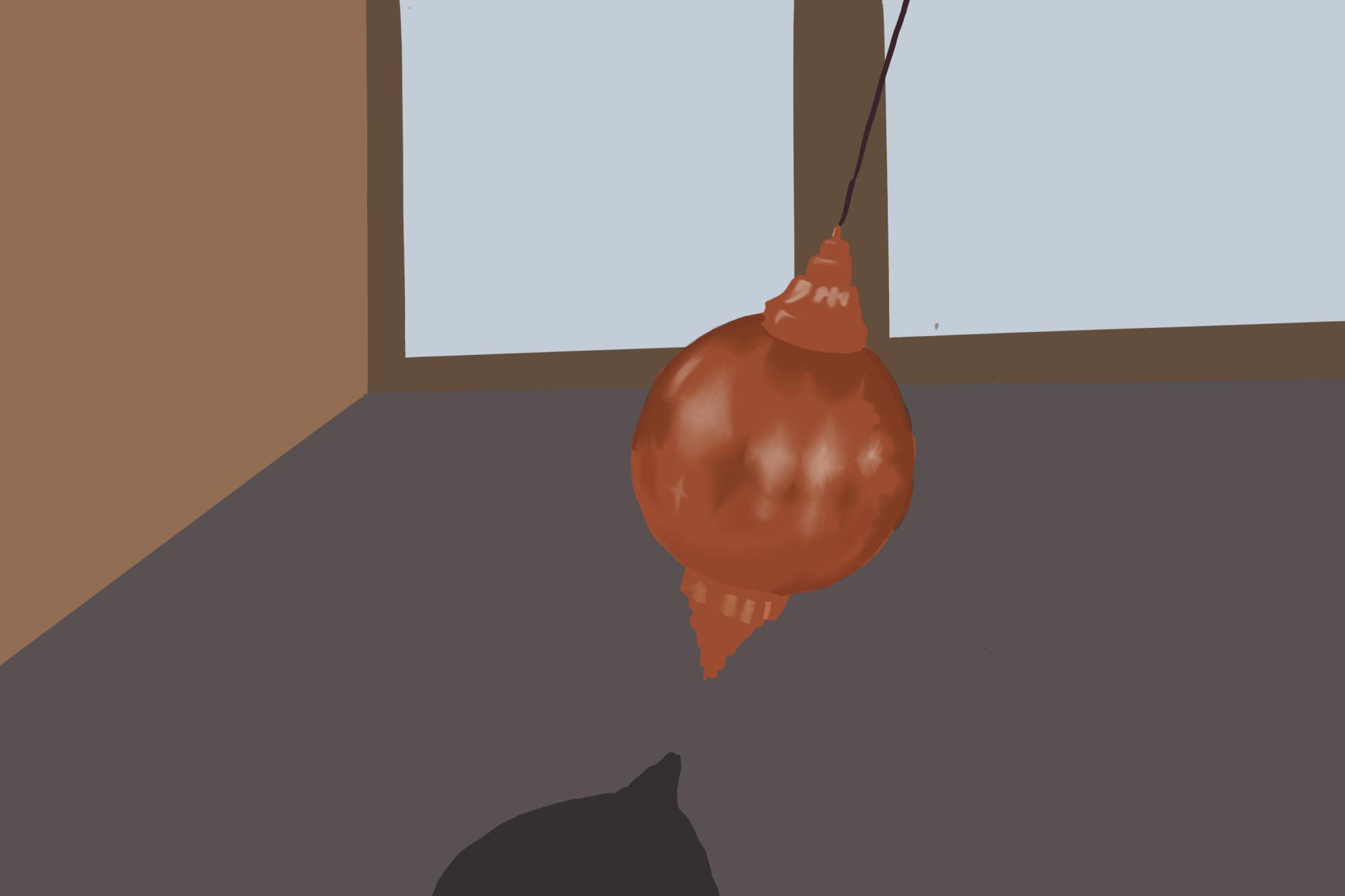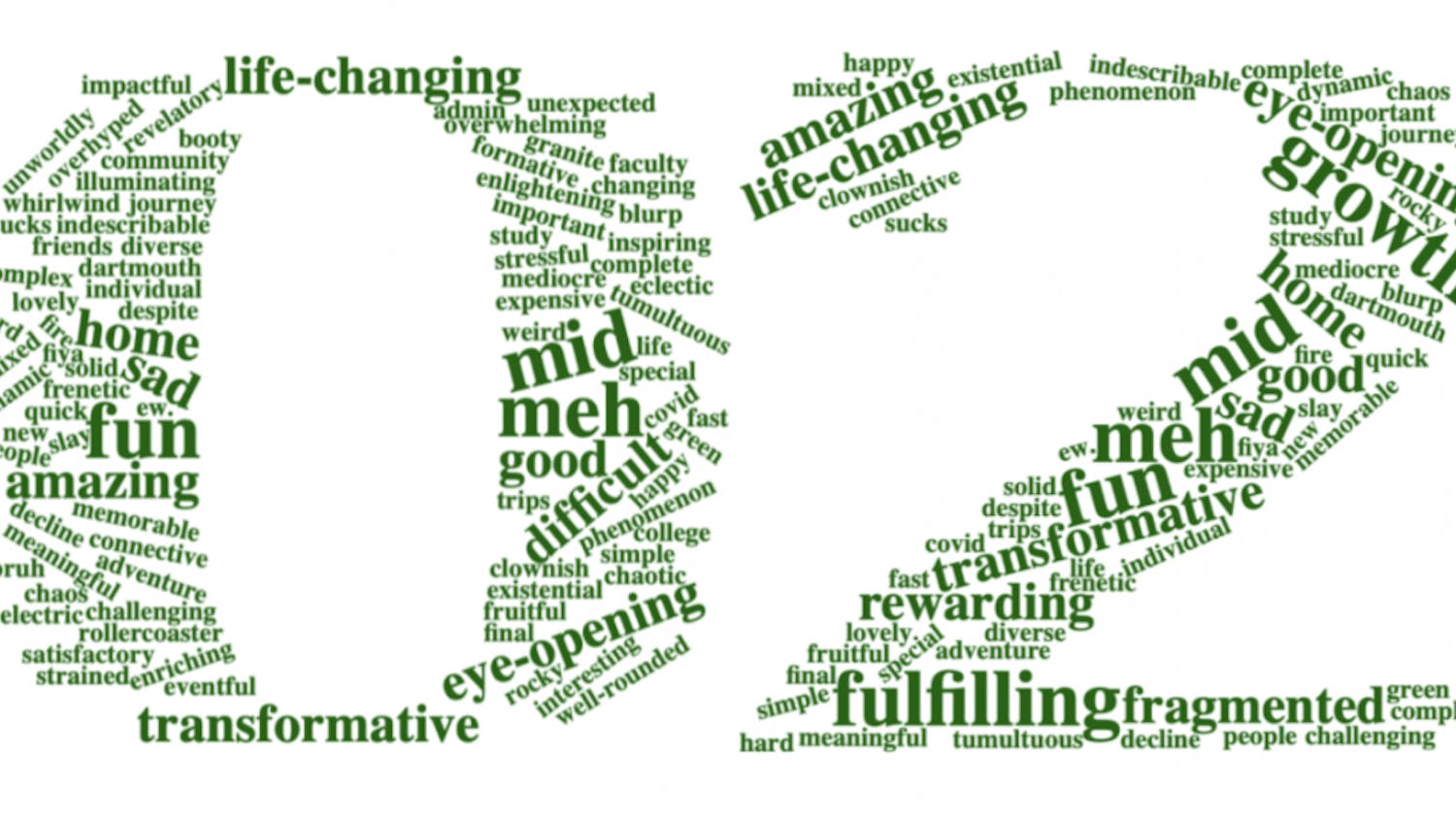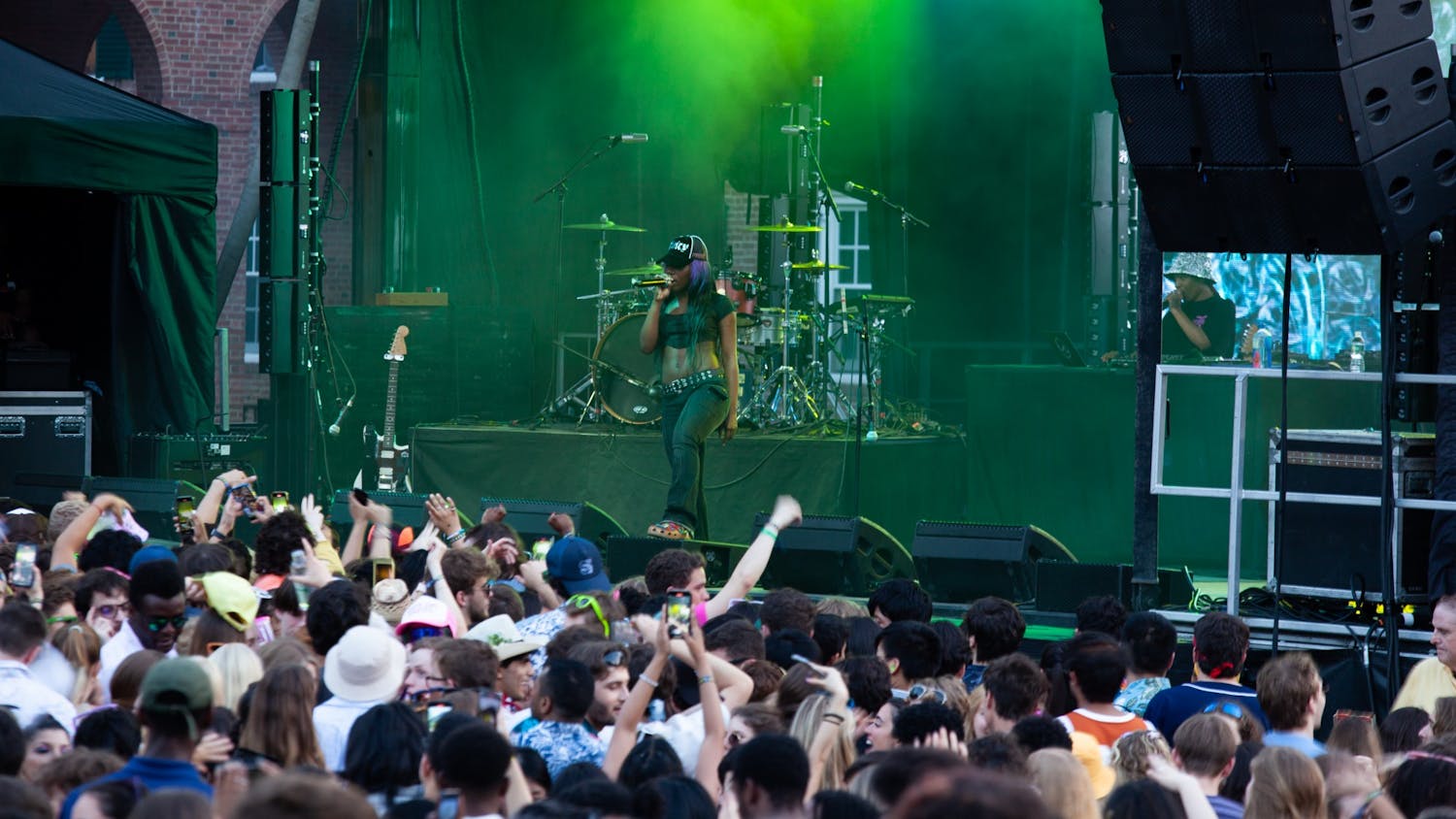Occasionally, I find myself alone in the Dartmouth cemetery.
I could lie and say my grandmother is buried in its hallowed grounds, but that would make me a legacy, and I wouldn’t want to give the wrong impression. No, my family didn’t go here. I’m just slightly disturbed.
Truth be told, I pass time in the cemetery out of shallow convenience rather than witchy compulsion. The cemetery is peaceful, centrally located and beyond the field of campus visibility. Sure, I’ve reveled in the perverse romance of writing poetry among the graves, but it’s the living — rather than the dead — that lure me back to the graveyard.
The cemetery is the closest I’ll ever come to escaping perception at this school, existing within Dartmouth’s grounds while operating outside of the Dartmouth gaze. I don't have to perform for the dead.
I first visited the cemetery on a crummy Sunday in my freshman spring: humid, wet, soft and dull. It was as if campus was reeling from its own hangover, as the clouds showered my Blundstones with intermittent episodes of warm, nauseous rain. I left my dorm that morning with an agenda but no destination. I needed to be outside, and I needed to ugly cry, alone and unperceived, awaiting an apology that never came. If a woman weeps in a graveyard and no one is around to hear her, does she even make a sound?
I sought refuge in the cemetery long before I had a word for what I was hiding from: that anxious awareness that all my actions were being surveyed by my peers. It’s an awareness amplified on Foco dark side and FFB but omnipresent across all pockets of Dartmouth’s campus, from each individual treadmill in Alumni Gym and bathroom stall in French Hall. The word for it, I’ve since learned, is panopticism.
Panopticism is a form of imprisonment via surveillance theorized by Michel Foucault in reference to Jeremy Bentham’s eighteenth century architectural prison system, the panopticon. Bentham’s Panopticon is an annular prison that places each prisoner in a visible, windowed cell surveyed by a central tower. Rather than hide its prisoners like a traditional dungeon, the panopticon places them on full display in a sphere, where they are made constantly visible to their peers and thus acutely aware of their visibility.
As described in Foucault’s book “Discipline and Punish: The Birth of a Prison,” the panopticon assumes the “automatic functioning of power” by inducing a state of “conscious and permanent visibility.” The inmate may not always be observed, but they always operate under the anxiety that they could be observed, thereby preventing them from breaking any rules or plotting their escape. The principle of panopticism is fairly simple: constant visibility yields “the perfection of power” without a sole enforcer. In the panopticon, each prisoner is simultaneously a victim and enforcer of their own subjugation.
While Dartmouth’s campus hardly functions as a prison, it induces a state of constant visibility reminiscent of Foucault’s theory. In college, every facet of life is made visible and public. You eat your meals in communal cafeterias, exercise in a public gym, study in the library — some of which eerily emulate panoptic architecture, such as Sanborn and the East Reading Room — and sleep alongside roommates. When every element of your daily routine unfolds in a communal space, there is no semblance of privacy, invisibility or anonymity. At Dartmouth, you are always at risk of being seen, even if your specific observers change.
In effect, panoptic surveillance is permanent. You could be the only body in Foco and still perform under the guise of social-policing and peer surveillance. At a certain point, you begin to police yourself. Simultaneously, you enforce panopticism on your peers by observing them as they order a Collis smoothie, loop around Occom, sprawl out their notes in Blobby.
Of course, every community bears some element of social policing. Perception is an inevitable part of the human experience. Dartmouth’s insular location, intimate student body and remarkably small campus exacerbate its panoptic nature. To function optimally, panopticism requires “the closing of the town from outlying districts.” Dartmouth certainly meets this criteria. In Hanover, there is no urban refuge one can flee to without hopping on a bus. We are isolated on a 269-acre campus in the middle of the woods.
Some students respond to the panopticon effect with codependence. They eat all of their meals with friends, study in groups, exercise with a gym buddy and constantly move in packs. At Dartmouth, one of the most brave and subversive things you can do is comfortably exist — and be perceived existing — alone.
When I returned to school after my off term — 12 weeks of unadulterated anonymity in New York City — Dartmouth’s characteristic panopticism was almost palpable. In Manhattan, my existence flew under the radar. Nobody knew my name, and nobody asked. I could wear my most fashionable or flamboyant outfit. Hell, I could walk around the East Village butt-naked and still not be the most noteworthy character in my vicinity. While surrounded by people, I was free of panoptic surveillance.
Upon re-entering the Dartmouth bubble, I felt as if I was re-subjecting myself to an arena of axial visibility. I couldn’t shake the feeling of being perceived as I lugged my suitcase across the Green. But the discomfort of existing under omnipresent scrutiny immediately subsided when I moved off campus. Off campus, the anxiety of feeling like I always have to perform for an invisible crowd disappeared. The mere ritual of eating breakfast alone grants me an agency and freedom I didn't know I needed until I got it back.
I haven't visited the graveyard once this term, and frankly I don't plan on it. On the Foley porch, I may not go entirely unperceived, but I’m able to escape the panoptic Dartmouth machine — and for the time being, that’s good enough for me.




